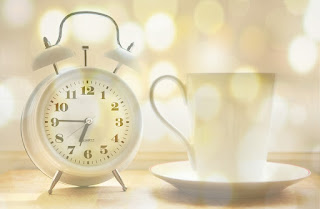 |
| How much or little light can translate how you feel for the day. |
Have you ever noticed how you feel when the sun is shining compared to a gloomy day of a gray sky and rain? The reason for those changes in our moods has everything to do with light and its route from the back of the eyeballs to specific parts of the brain and the pineal gland, which releases the sleep hormone, melatonin. However, you can fool mother nature by using some lighting strategies to better your mood.
Morning Wake Up Tricks
If you’re not lucky enough to live where your mornings are usually bright and sunny, then you need to try some artificial light through low input LED that can mimic natural sunlight. This source of artificial sun can send the same messages to the brain as the real deal to make you feel more cheery in the morning.
As soon as you wake up, you can also try opening the blinds or drapes to let more light into your room. This simple action can help improve how you start your day. If you want to speed that uplifting feeling, then try taking a short walk or run. This activity will stimulate those mood boosting endorphins, not to mention the advantages of direct exposure to natural sunlight, which is far more powerful than what pours from windows indoors.
Beating the After Lunch Energy Drain Through Lighting
Then again, you could lose your gusto around mid way through the day after lunch. Blue light can help because of its short wavelength in how it translates to the brain. On the same note, your LED screen or television won’t be able to transmit enough to energize you unlike the benefits of using a special lamp such as Phillips goLITE Blu Energy Light that delivers pure blue light like a perfect sunny day for just 15-45 minutes a day.
Getting to Drift Off Sooner
Of course, you might have a hard time falling asleep. The best way around this is to start undwinding from computer activity at least two hours before bedtime. Another thing to consider is the lighting in your room. Any blue light like moonlight coming into your bedroom can distract and make you mellow. Block out that light by drawing your blinds or drapes. You could also try red light, which works on a deeper level. However, the evidence of how helpful red light is for fatigue and depression is inconclusive.

